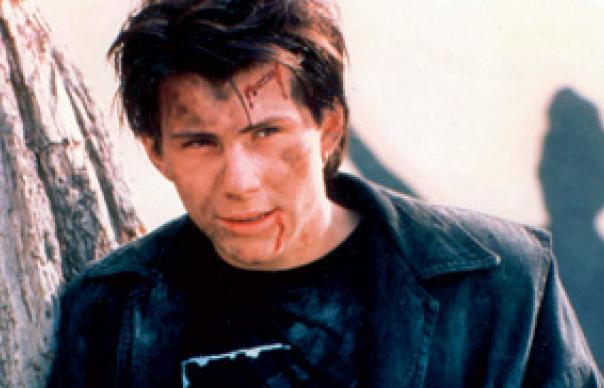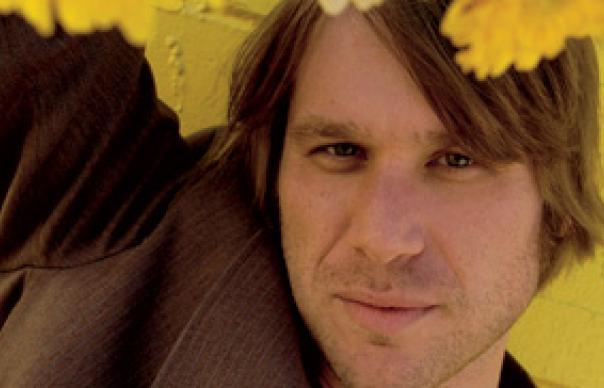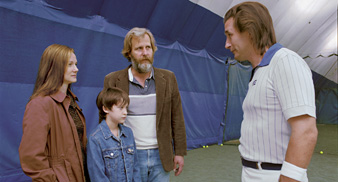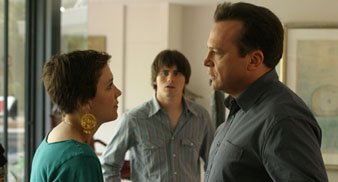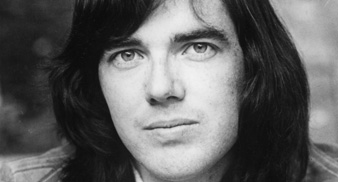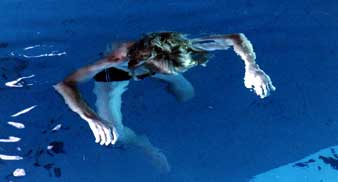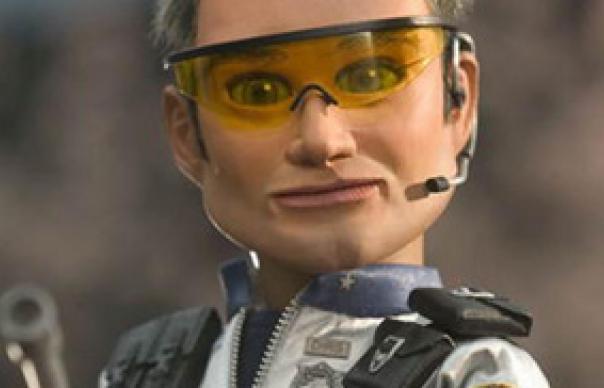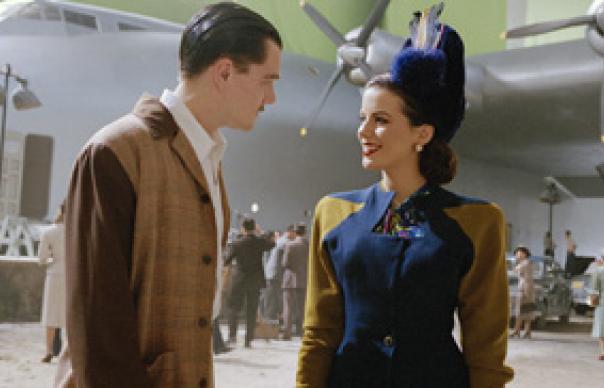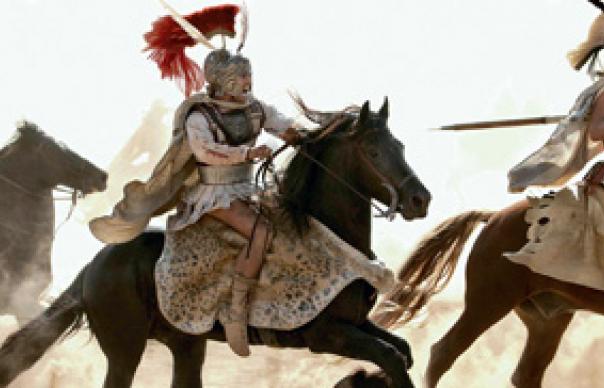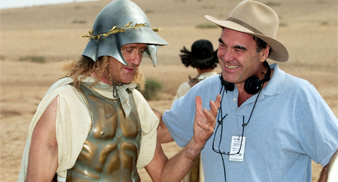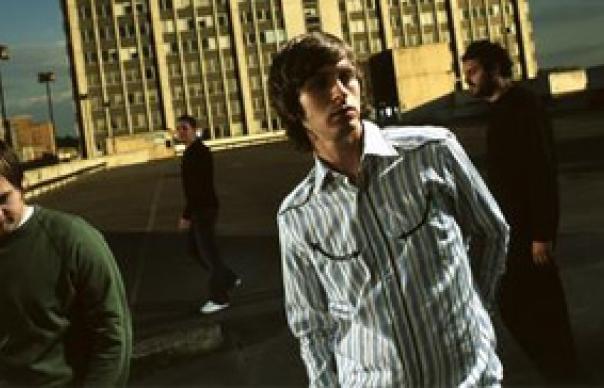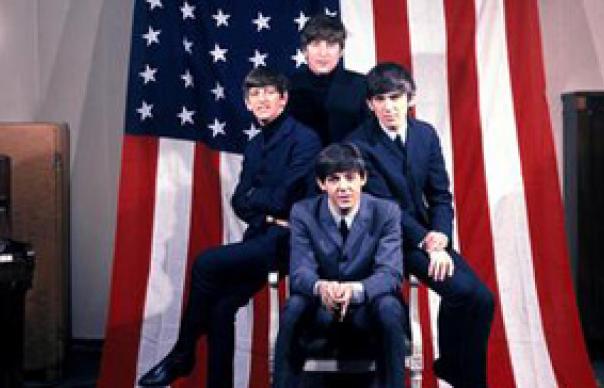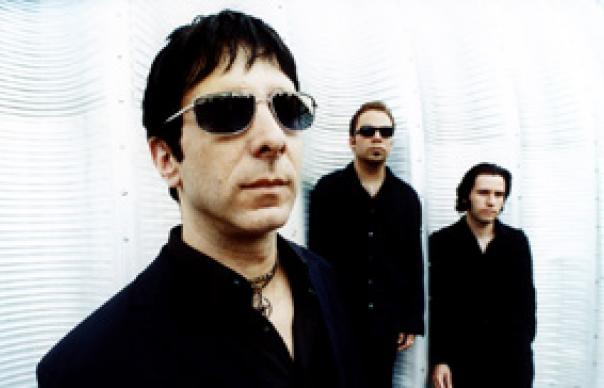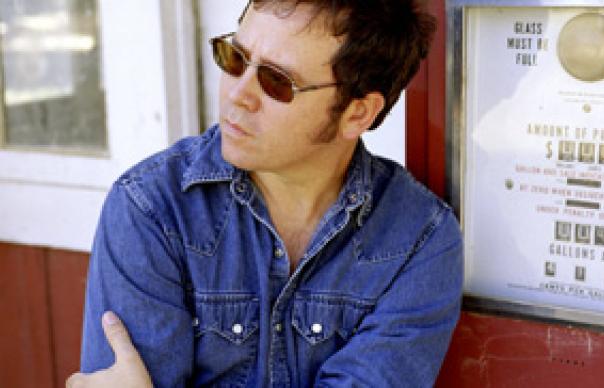Suddenly, Brian Jones, golden boy of the 1960s and founder member of The Rolling Stones, is back in the news. There are rumours that his death is to be reinvestigated. And there is a film about his life due to hit the screens this summer. Taking the working title of The Wild and Wycked World of Brian Jones, it’s directed by Stephen Woolley and produced by Finola Dwyer. In this special feature, we speak to the actors and key figures behind this historic rock movie
Cast of characters
Leo Gregory (Brian Jones)
Paddy Considine (Frank Thorogood – Brian’s builder-in-residence)
David Morrissey (Tom Keylock – Stones road manager, Brian’s “supervisor” and an old friend of Thorogood)
Monet Mazur (Anita Pallenberg)
Amelia Warner (Janet Lawson – said to be Keylock’s mistress)
Tuva Novotny (Anna Wohlin, Brian’s live-in girlfriend at the time he died)
Lucas De Woolson (Mick Jagger)
Ben Whishaw (Keith Richards)
Click on the cast or crew member’s name to read their Q&A.
 |
|
|
 |
UNCUT: After 10 years researching for this film, do you consider that you’d personally have liked Brian Jones?
WOOLLEY: I don’t think any of us would’ve liked him. I think Brian was a true artist and a serious composer. He went to Morocco to record music. He scored a film in Germany. The first thing Jagger and Richards did was “Snip Snap Crackle”, a Rice Krispies jingle [Woolley plays a video of the offending ad]. While Brian was hanging out with the great artists and minds of his time, this is what Andrew Loog Oldham was making Mick and Keith do.
What were your priorities in telling the story?
There are almost six stories. There’s Janet, who wanders into this insane universe with Tom Keylock. Tom’s control over Brian and Frank Thorogood, Frank’s relationship with Brian… It’s the stories of the three girls, Anna, Anita, Janet, and the three men, Brian, Tom and Frank.
What happens in this world of Brian Jones – the [1970] film Performance is very much that story, a hard guy coming to a rock star’s house. When Mick read Performance, he said to Marianne, “I can’t do this, it isn’t me.” She said, “No, of course it isn’t you – it’s Brian.” Then Mick played it as Brian. If a gangster came round to Brian Jones’ house, Brian would definitely want to fuck with him, get into his brain. If a gangster came to Mick Jagger’s house, he’d be on the phone and the police would be round.
It was surprising to see Tom Keylock on the set.
Tom’s one of our advisers. Quite a lot of the details we got from Tom. It was his relationship with Frank that triggered this whole thing off. It’s quite a complicated story. It’s not like he [the late Frank Thorogood] just got up one morning and decided to murder Brian Jones. It’s the route that it took to get there. We worked incredibly hard to try and be faithful to the events.
Some sources have alleged that other people, not just Frank, Janet and Anna, were at Cotchford Farm on the night Brian drowned. How did you reconcile the contradictory accounts?
Janet, Anna and Tom haven’t spoken to each other for 34 years, and their stories don’t vary. If there were more people there, why would they lie? The other builders may have been hanging around, and Anna and Janet may not have noticed them.
Nicholas Fitzgerald claims he witnessed three people holding Brian underwater, watched by two others.
There’s no evidence for that. His book was never published in Britain. I think both Nicholas’s and Anna’s books are exaggerations. The life of Brian wasn’t as idyllic and lovely as Anna painted it. There’s evidence that there were other women round the house, maybe when Anna was visiting London. Brian was also seeing Suki Potier, who was probably more important to him than Anna. We’ve fashioned the story to take these aspects into consideration.
UNCUT: How did you become involved in the film?
WADE: Stephen bought the rights to Return To Sender, a script we’d written (which got made earlier this year). We got on well. He said, “Are you interested in The Rolling Stones?” We said, “Yes, but we’re not interested in rock biopics.” And we didn’t want to get involved in an expose.
PURVIS: Then we came across Terry Rawlings’ Who Killed Christopher Robin? That seemed to represent an authentic version of events.
You’ve spent 10 years making this movie happen. How come?
WADE: Stephen had a very busy life as a producer. He needed to put his undivided attention to it.
PURVIS: There’s been drafts, drafts and drafts, but I don’t think the script was right until Stephen decided to go ahead, six or nine months ago.
WADE: Leo [Gregory, acting Brian’s part] would’ve been 15 when we started writing.
PURVIS: We’ve been working on it for longer than Brian was in the Stones.
What is at the heart of the film?
PURVIS: Essentially it’s about the relationship between Brian and his builder and how they got into that situation where something unpleasant can happen in a swimming pool. It’s meant to be a realistic relationship where they played games with each other.
WADE: For us, Brian’s death symbolises the end of the Sixties even though people say it was Altamont, which was a few months later. You could say the film is about the Sixties and Brian is the most extraordinary man. It’s literally a clash between two archetypes, with Frank as the normal guy. This is not a sensationalist thing. It’s not a conspiracy – Keith jumped out of the bushes and him and Mick drowned Brian in a bucket of water. It’s very important that personality comes through more than the fact that Brian was in a band called The Rolling Stones.
Have you confronted Brian’s misogyny?
WADE: The mother of one his children [presumably Pat Andrews] talks of Brian like he was a god, and he’d treated her very badly. He was a bad, bad boy. So that was one of our difficulties. Suki Potier meant a lot to him. She dyed her hair blonde to be like Anita, and she had the same kind of thing with him but she wasn’t into the violence. She was temporarily out of Brian’s life and may well have come back into it – but he died. We’ve seen these pictures of her at the funeral. She’s absolutely devastated.
Could Brian have lived if his friends had taken better care of him?
WADE: He might have, but then, if you drive your friends crazy…
PURVIS: In recent years, Keith’s comments have hardened into not-very-nice things.
WADE: Ossified – like his face. I think it was quite remarkable that Keith didn’t go to Brian’s funeral. I imagine the Stones must’ve felt some kind of guilt. But in any circumstance, it’s almost impossible to imagine Brian Jones still being around today.
UNCUT: What triggered your interest in Brian?
RAWLINGS: I was working at Decca as a post boy in the late Seventies. Most of the people that worked for The Rolling Stones were still there, and they all had a story about Brian Jones. Before you knew it, you had a wealth of information about this complete lunatic. I always thought he was murdered. There was always rumours around.
How did you set out?
Nearly 15 years ago it all started. The first person I tracked down was Frank Thorogood. I knew he came from Mill Hill so I went to north London and looked up his name in the phone book. There was only one with the initial F. I went to his house and knocked on his door. He was obviously a bit shocked but he made a cup of tea. I didn’t know then that he’d be the prime murder suspect.
What were your initial hunches?
I thought there was a gang of ’em at Brian’s that night, that we were looking for a lot of people. And I’d read all these stories – anyone that was going to look into this would get done in. I was really disappointed no one ever came up and said, “You’re opening a can of worms, son – you don’t know what you’re getting into,” Scooby Doo-style.
What happened next?
Frank made out he wasn’t in touch that much with Tom Keylock. I left my number for him to give to Tom if he should happen to talk to him, and literally the next day Tom rang me.
Your book reprints official documents, including a sworn oath by Keylock that he witnessed Frank Thorogood’s deathbed confession to killing Brian. Do you believe this confession happened?
I think Tom was hoping that would put the tin hat on it, but obviously, it just put more fuel on the fire. I think it’s really convenient for a lot of people to go along with.
Before Thorogood died in 1993, you took him and Keylock back to the pool at Cotchford Farm. What did you do there?
We filmed them. We bugged the bushes, all of it, up with microphones. I was putting someone’s name in the frame for murder, and it was a bit difficult to weigh up how I stood legally as well as morally. But within the last couple of weeks of my research, Frank died.
Are these experiences included in the three new chapters of the book, re-published later this year to coincide with the film?
Yeah.
What else?
I’d like to clear up the cover-up after Brian’s death. There’s a hell of a lot of stuff that will upset a few more people. Some real obvious things have been overlooked. New bits add to it like a puzzle, and it gets bigger on its own. I’ve got so much information that, like any murder, there’s quite an obvious way of solving it. It’s not so mysterious after all.
UNCUT: Did you know much about Brian before the film?
GREGORY: My musical preference is very contemporary, hip hop and garage-based. I could have listed the bigger of the Stones tracks but my knowledge was very limited and Brian I hadn’t heard of.
I screen-tested and got the gig a week and a half before we started shooting. I would’ve pooped myself but there wasn’t any time. I got some great Decca box sets of all the early stuff. I read many books. I had guitar lessons. I just crammed everything in. I watched video footage, although partly due to Brian’s mental state and largely due to the fact that Andrew Loog Oldham, once he came on board, kept him away from interviews, the things to look at were limited. A lot of my research was done through the work of Gered Mankowitz, the Stones’ photographer.
How difficult is it to convey the drama going on in Brian’s head?
It’s tricky. I’m trying to play a guy who didn’t always know what he was going to do himself. He contradicted himself so much – “I’ve gotta tighten my belt,” and the next minute, “I’ll go and buy a double decker bus or a Rolls Royce.”
He had a very unloving childhood. There were pivotal moments where his family pushed him to the periphery and he didn’t really know why. His parents were very conservative. Not to totally paint them as the bad guys – Brian was amazingly intelligent, he could’ve done the Oxbridge thing, so you can understand why this crazy rock’n’roll was not what they wanted for their son. That upbringing and that isolation stuck with him and messed him up and he didn’t know how to deal with Anita, someone he really loved.
Have you addressed Brian’s alleged bisexuality?
There was this definite campness about him – he and Anita used to dress up – but you don’t want to make this guy a… fairy, cos he really wasn’t. It’s a very fine line. You can’t make him overtly gay. Clearly with five illegitimate kids, he had a thing for women. If he’d lived he may have come out.
What’s your reading of the murder theory?
There’s too much mystery, too much cloak and dagger, and too many lies for something not to have happened. I’d say it was in the interests of the two main players [presumably Thorogood and Keylock] to get as many differing stories out there and to shroud and confuse as much as possible. The way we’re doing it is very responsible. I believe it to be not too far from the truth.
What do you want to show the public of Brian?
It would be so easy to play him as “poor Brian”. He could be the most sweet, sincere guy, but we all know he could be an arsehole at times. A lot of this stems from his childhood and not knowing how to give or receive love. His violence towards women ties into the same thing. Throw in a bunch of drugs and insecurities – not for one second is it acceptable, but you can see why he lashed out.
UNCUT: How did you feel about playing Anna?
NOVOTNY: I grew up with the Stones. I loved them. But I barely knew of Brian, and I didn’t know anything about Anna. So when I met Stephen, he put me in the office with a pile of books and said, “Read!”
What other preparations did you make?
I spoke to Anna. It must be so difficult for her to talk about it. It’s been 35 years, but it’s like the biggest shock of her life. She was lovely. She was very much into details, like if I was wearing the same clothes she used to wear, which is understandable. But as I told her, the Anna character is based on a couple of women Brian had. She’s mostly based on Anna, but some things I felt I couldn’t tell her cos it’s not going to be accurate to her picture of what happened.
How did you react to Anna?
It was a wonderful little talk but upsetting because I realised how much effect this had on her. They lived together for, like, three weeks, but Brian is still the love of her life. It’s the circumstances of his death that have made such a huge impact on her. She tried to save his life in the pool. I don’t think she meant as much to him as she thinks. He meant the most to himself and, second, Anita.
Did this conversation influence your work?
I had to let go of it and create the character that would support the story in Stephen’s way. I didn’t want to feel responsibility towards Anna, because this is so much bigger – so many lives and so many stories. It’s Stephen’s piece of art. That’s what I want to contribute to.
UNCUT: Did anything surprise you about the storyline?
DE WOLFE: I hadn’t known anything about Brian being the person who got the Stones together. He was the driving force, getting them up and rocking.
What were the problems between Mick and Brian, would you say?
Despite his image, Mick was very professional in the way he worked and Brian started to drift away from that with the Stones. He couldn’t control his “Out-of-band activities” as well as the others, and that frustrated Mick and caused him concern. Mick probably came across as a parental figure in some ways, and that probably pissed Brian off. They were scared of Brian. He was a psycho. He had a violent temper. From what I’ve read, he once dragged Mick out into a pond and tried to drown him.
The script overlooks the one-night stand between Mick and Brian that’s been alleged by Anita.
I’m quite glad I didn’t have to play that…
Did Mick and Keith deliberately sideline Brian?
The film focuses more on his private life, but there are moments that suggest Mick and Keith are ganging up on him. They do contribute to Brian’s mental decline. He’s constantly paranoid they’re trying to force him out. In one scene, he’s comatose in the studio and we try in vain to wake him. Maybe it’s the first time Mick realises Brian’s going to be too much of a handful. The film definitely shows the effect on Brian of being chucked out.
Do you endow Mick with a sympathetic side?
He genuinely cared about Brian. He wasn’t a big mean bad old ogre. I don’t think anyone can be held to blame for Brian’s demise other than Brian. I have every belief Mick was devastated when he died.
UNCUT: How do you view the early relationship between Keith and Brian?
WHISHAW: They had a very special connection through their music. Playing guitars together was almost their primary means of communication.
What’s your opinion of Keith’s betrayal of Brian with Anita?
My personal view is that Brian knows something exists between Keith and Anita and that given the way he’s drifting away from the group and into drugs, she will eventually fall into Keith’s arms. The scene where he almost forces them to sleep together is Brian, weirdly, protecting himself from the inevitable. He’s controlling the situation – “I wanted that to happen, therefore I’m invulnerable to him.”
At the same time, Richards was outraged at Brian’s unreliability…
Despite Keith’s fury at the way Brian has let down the band, I think he knows that he’s a brilliant musician and a valuable member of the group.
Do you believe Keith felt guilty in any way?
I don’t think there’s any real guilt about the Anita thing, certainly not before Brian’s death.
How do you interpret Keith’s behaviour in the sacking scene?
Keith is pretty glum. He doesn’t really want to do it. I think he finds it quite painful. At the same time, he’s realised that it’s necessary. The whole film is really an examination of how Brian came to die. Keith, Mick, Charlie – their treatment of Brian is a factor, but you can also see the mess that he has brought upon himself through his own character, his own nature.
Brian was murdered – that’s the major factor. The interesting thing in the script is that it’s almost as if Brian pushes Frank to murder him. It was accidental, but in a way he wanted it and he was pushing for it. It’s kinda messy.


